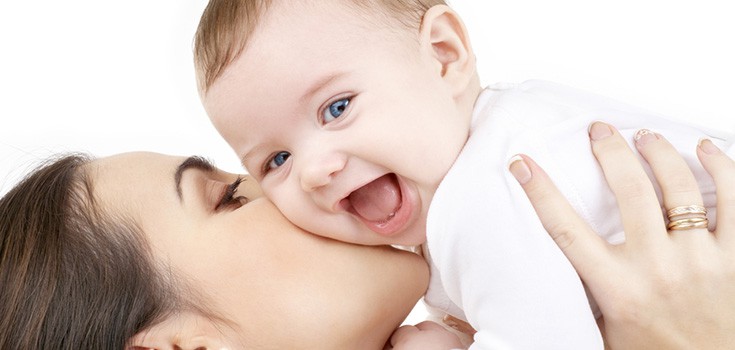Is Breast Milk the Key to Mother-Baby Bonding?

There is nothing as precious as watching a newborn baby and a mother bonding. Early bonding is natural and important for healthy childhood development. But what creates the mother-baby bond? As many mothers might already believe, moms who breast feed are actually more apt to bond with their babies than those that formula feed. Research shows that breast-feeding mothers show stronger brain response when their baby cries as compared to mothers who do not breast feed.
The Research
Researchers from Yale University placed mothers of similar age, economic, and educational status in two groups; those that breastfed and those that fed their babies formula. Functional MRI tests were given one month after infants were born. All mothers listened to recorded sounds of an unknown baby crying and their own child crying.
While both the breast-feeding moms and the formula feeding moms showed more response to their own children crying, the changes in brain activity were far greater for the breast-feeding mothers.
The study from Yale is the first of its kind to link maternal behavior to brain activity. However, researchers note that the breastfeeding factor may not the only thing to consider when examining the mother-baby bond. There may be any number of reasons why breast-feeding mothers are more sensitive than formula-feeding mothers to the sound of their baby crying.
Hormone levels may play a part as nursing moms release oxytocin, known as the “love hormone” which could strengthen the emotional bond between mother and child. There could also be psychological aspects that help create the bond, as well.
Value of Breastfeeding
Breastfeeding has been proven effective in developing a strong immune system and providing wholesome nutrition for baby. However, nursing a baby is more than just “good food.” Nursing brings mother and child closer together and is a time for babies to watch and learn. Babies often study their mothers faces while bonds of trust and acceptance are formed. What’s more, they quickly learn to identify nursing with comfort and will seek to nurse when stressed, frightened or in pain.
To put it simply – don’t turn to baby formula. In addition to providing numerous health benefits for your baby, you will also be avoiding toxic baby products. DHA/ARA-enhanced baby formulas in particular should be avoided, as they are synthetic and made in a lab with algae and fungus.
